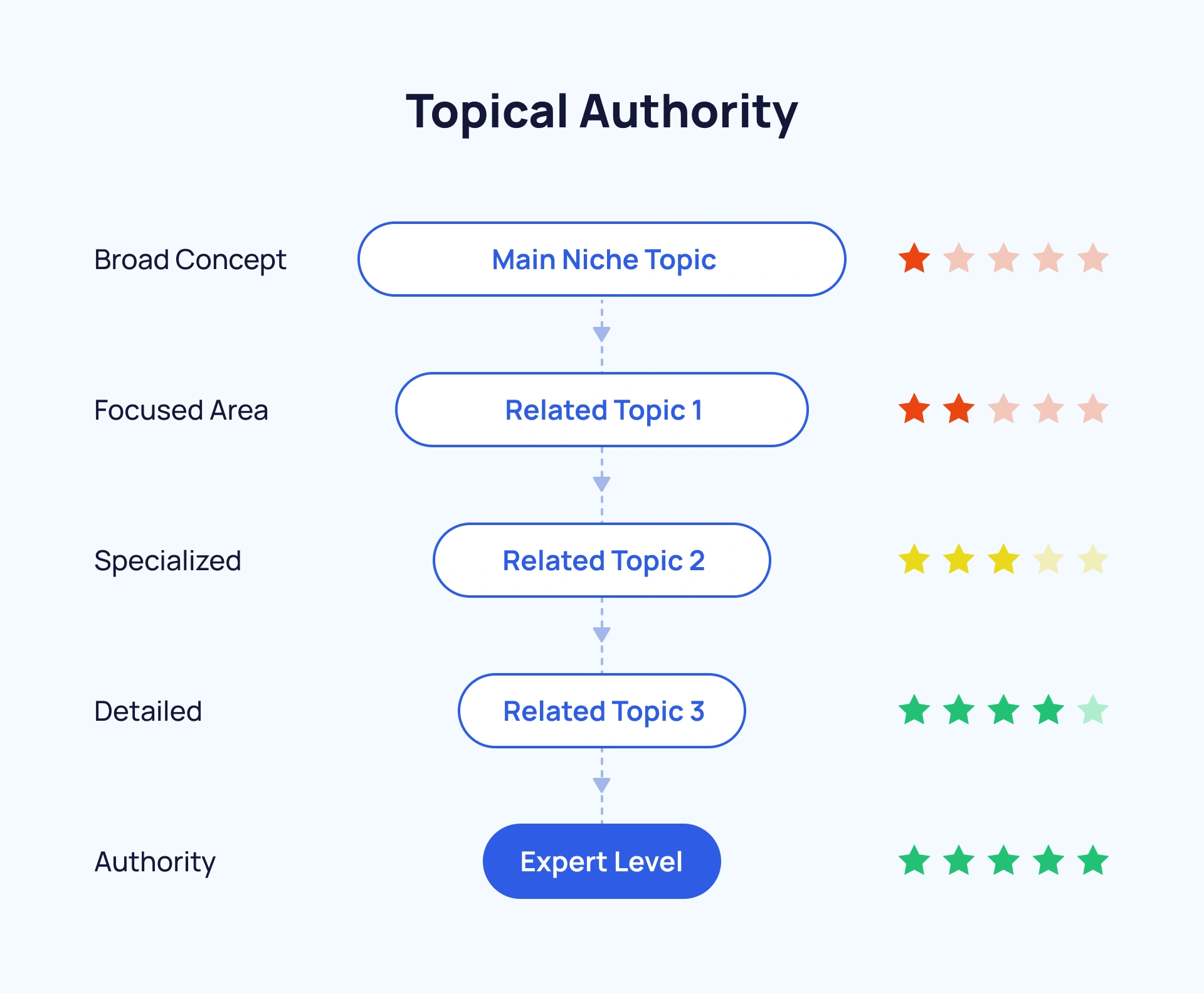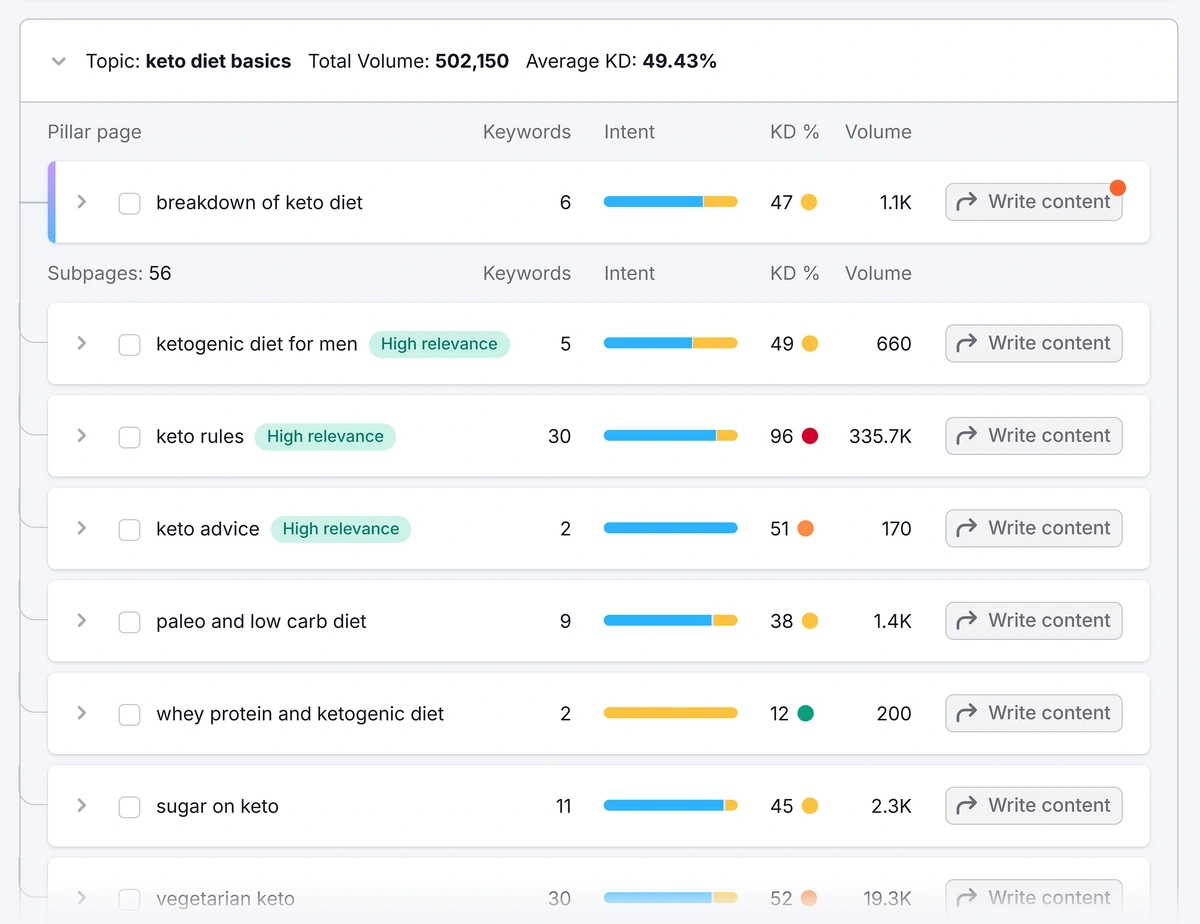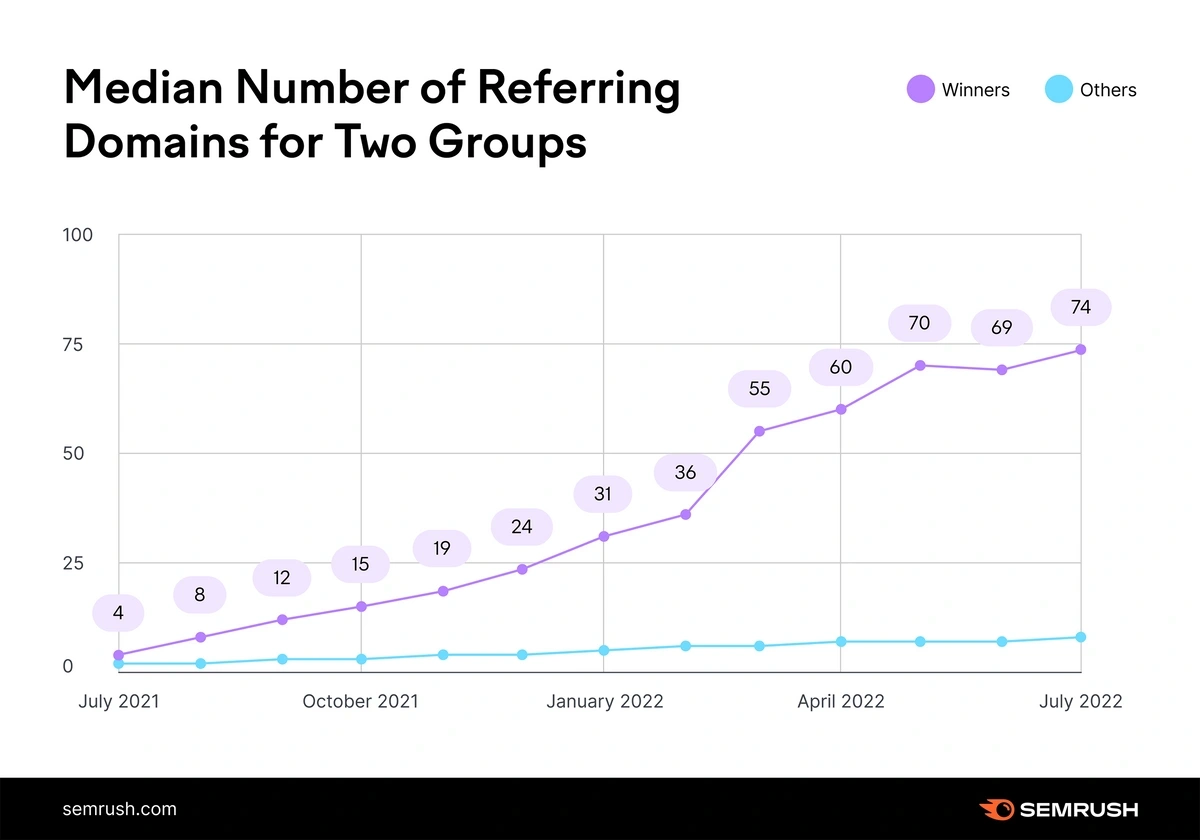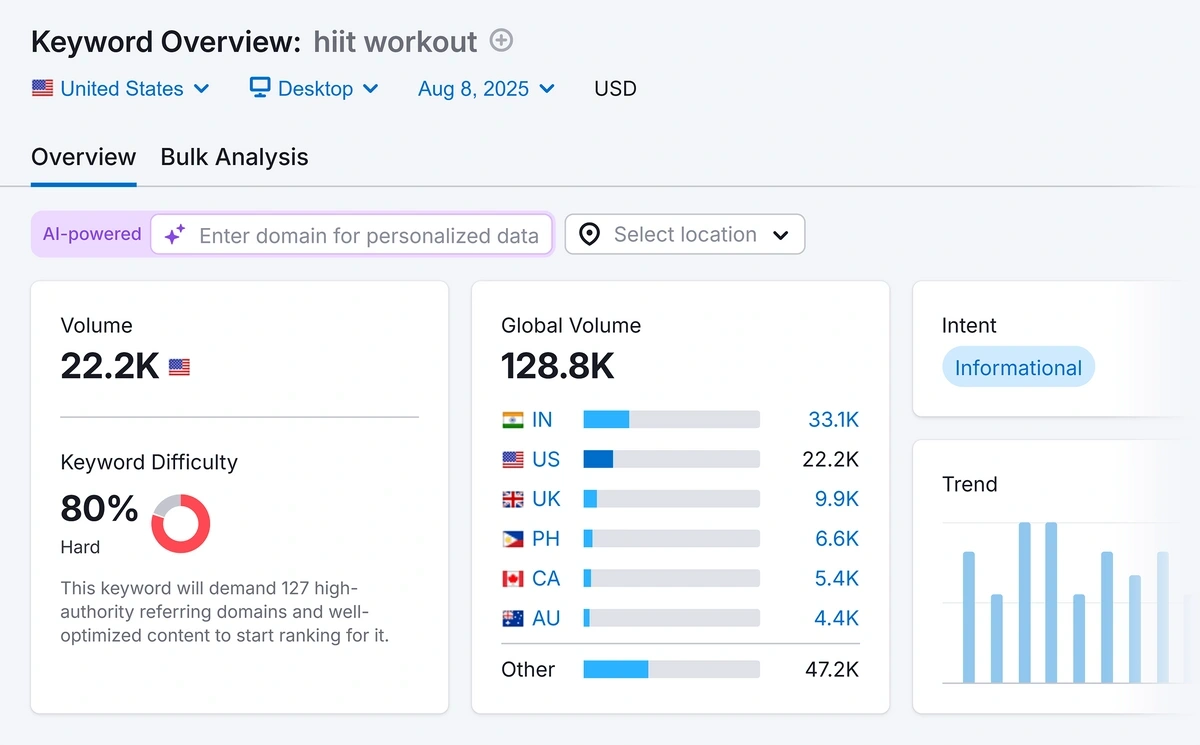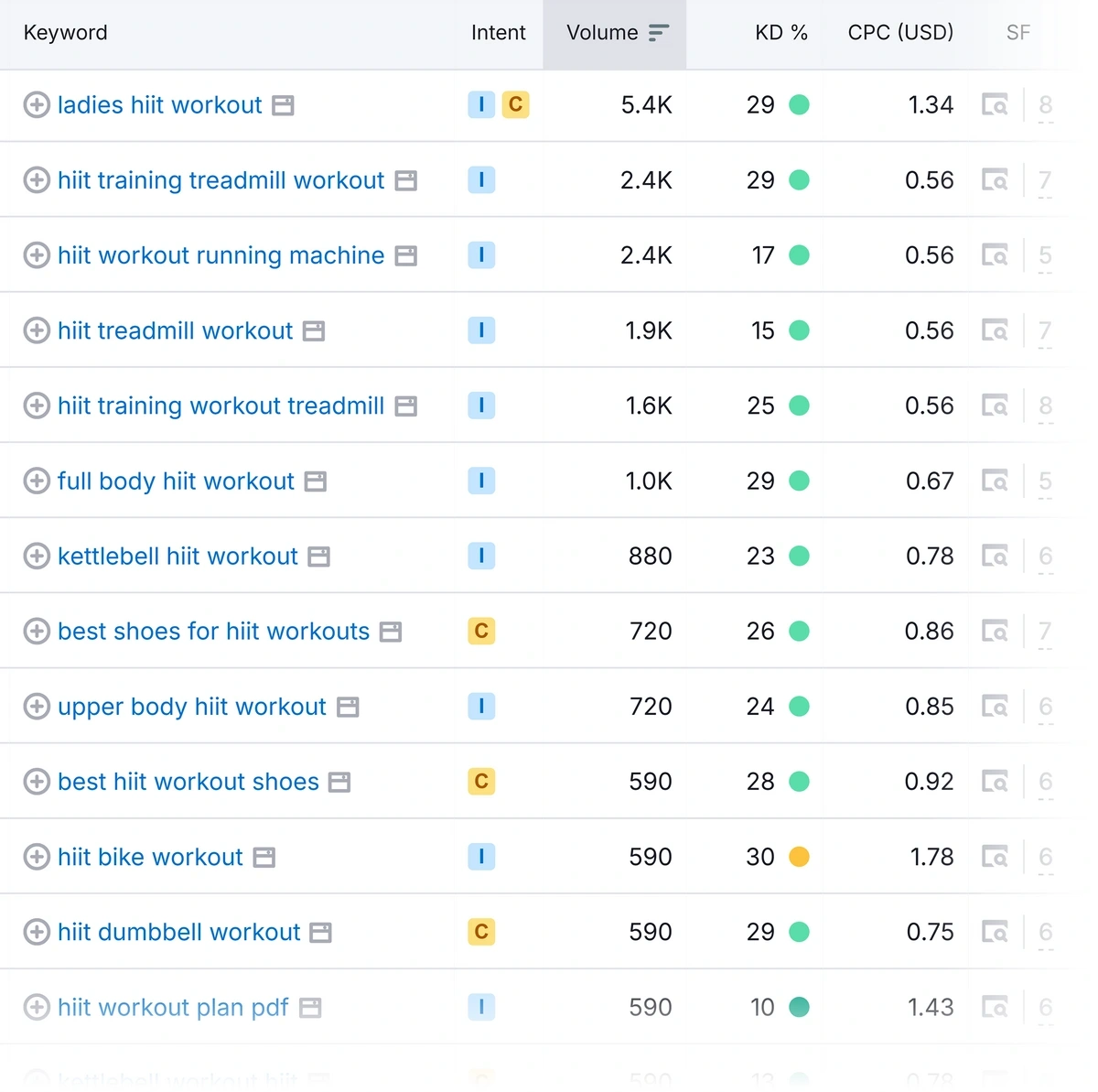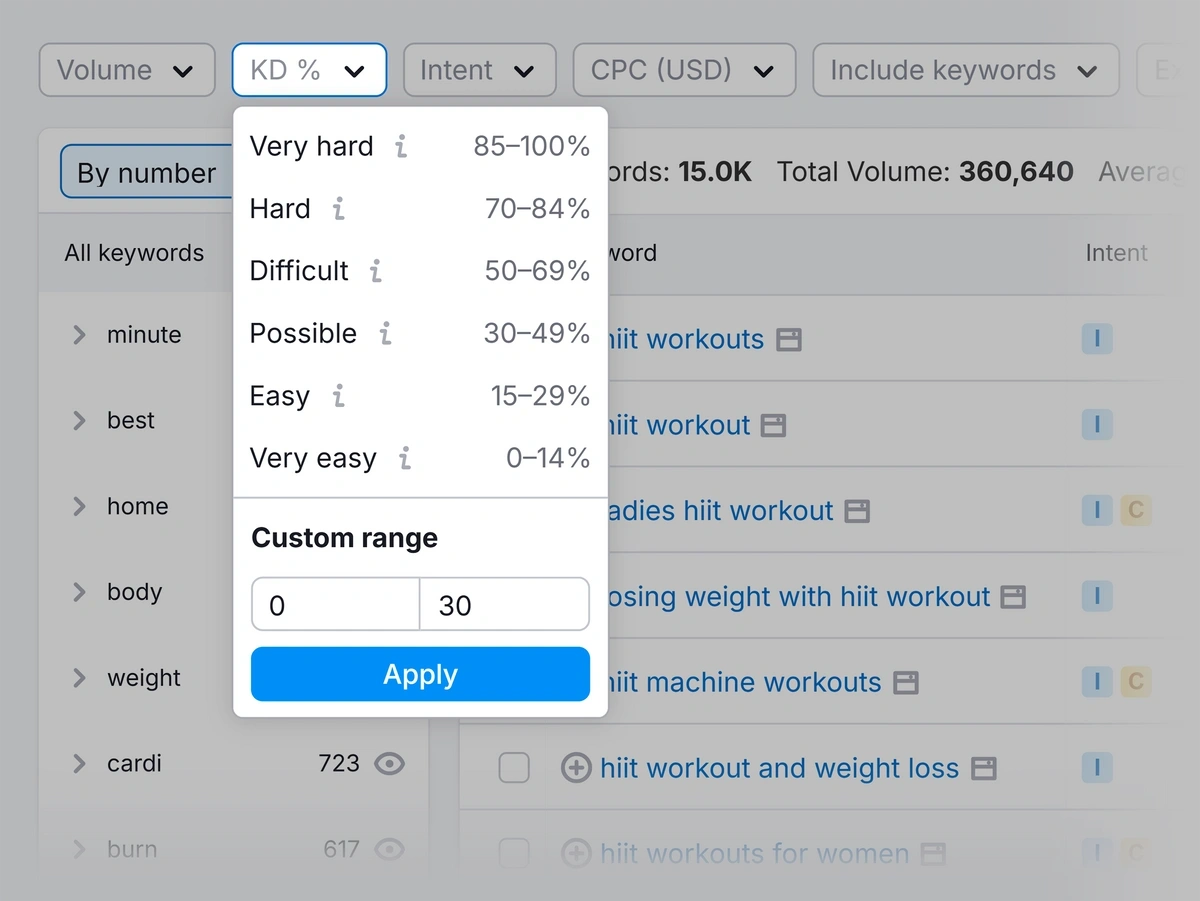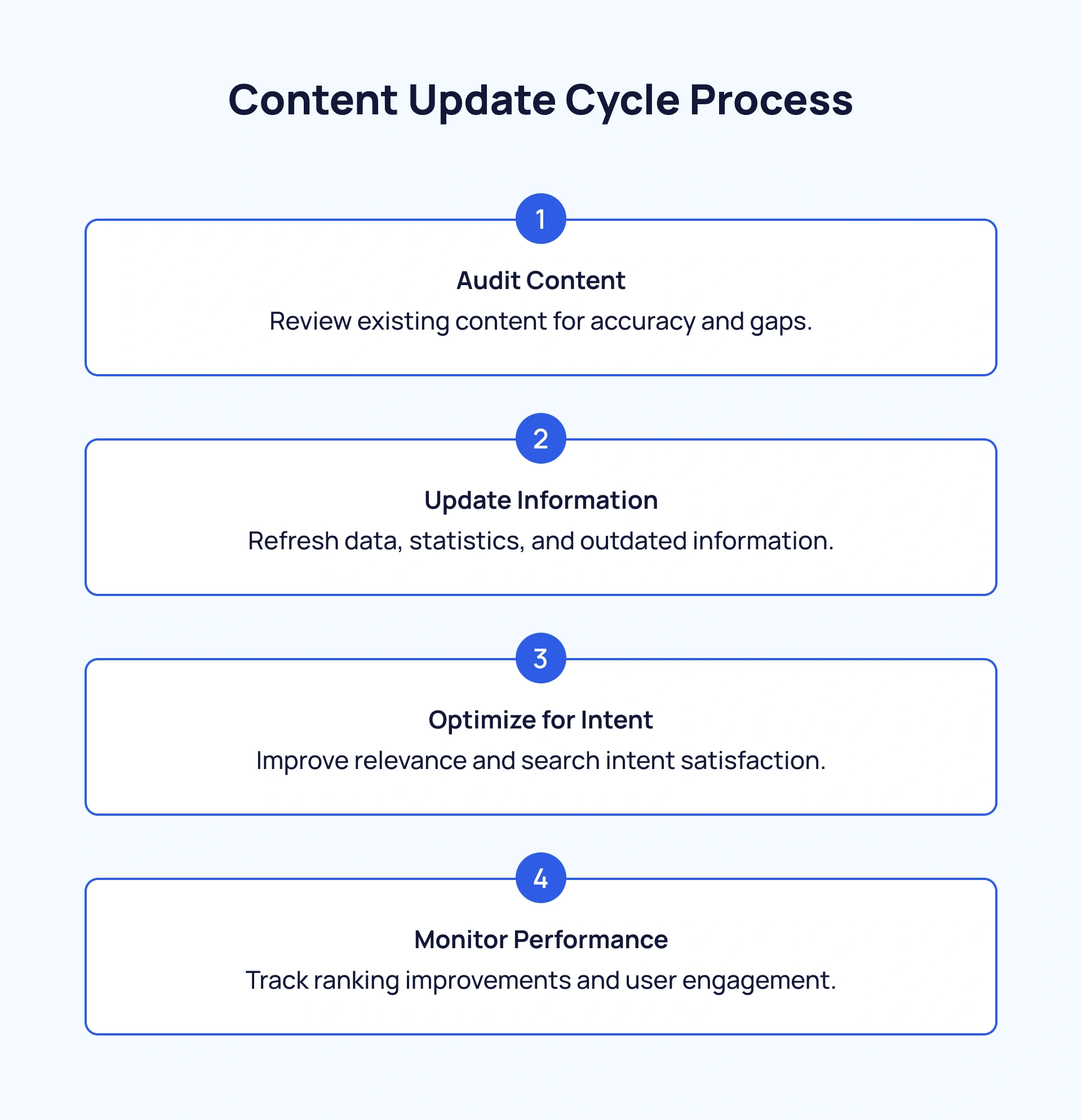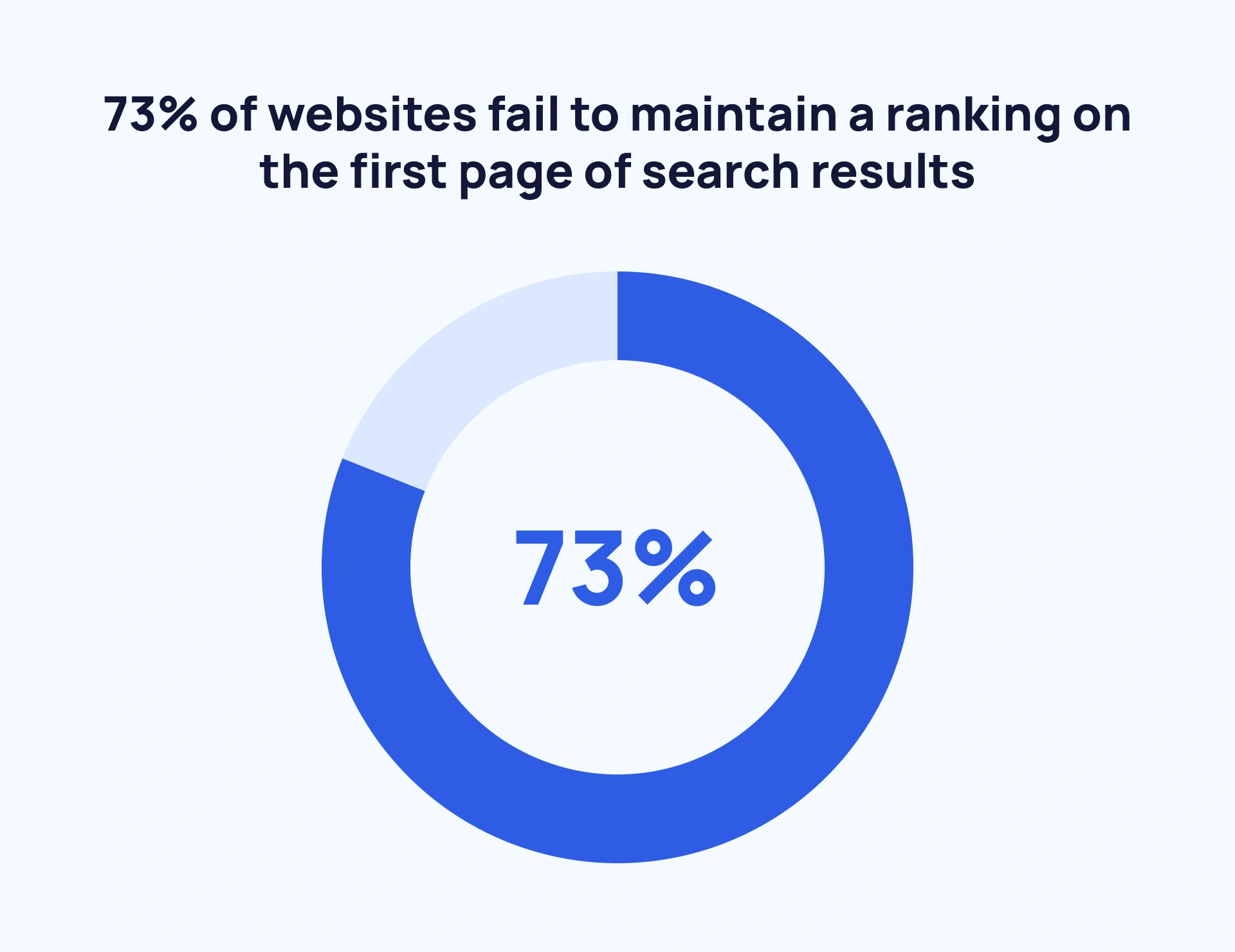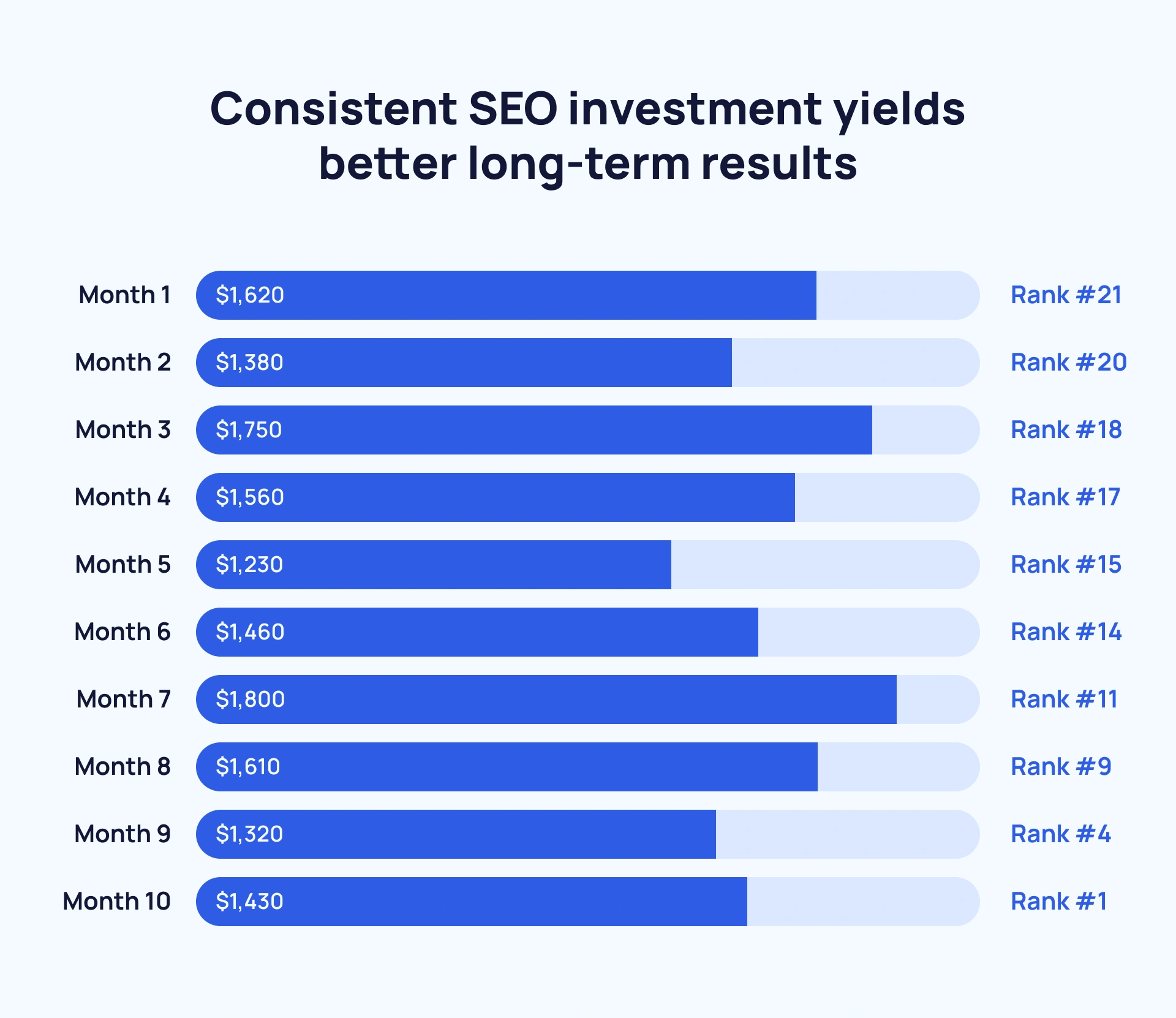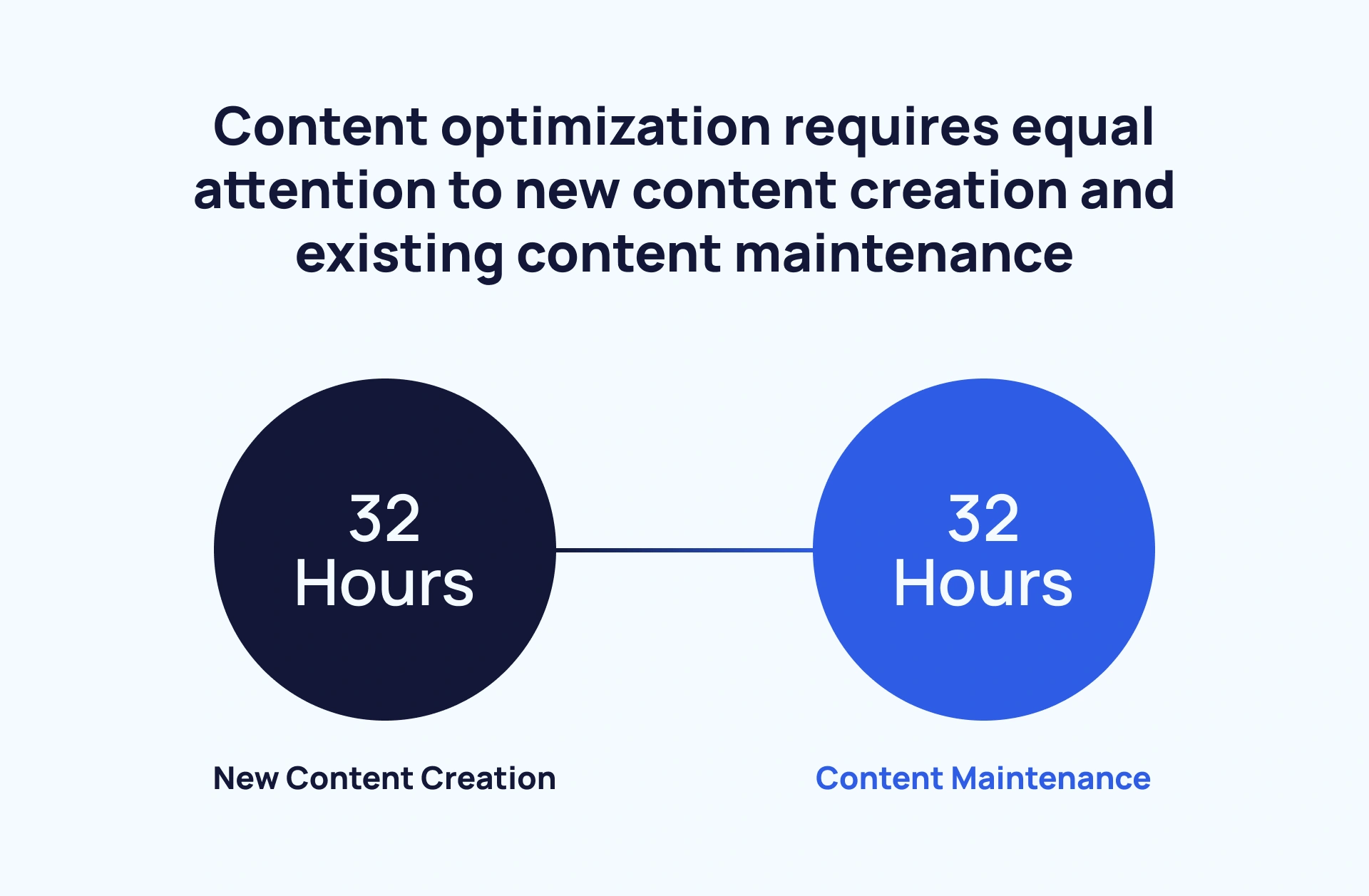Get Advanced Insights on Any Topic
Discover Trends 12+ Months Before Everyone Else
How We Find Trends Before They Take Off
Exploding Topics’ advanced algorithm monitors millions of unstructured data points to spot trends early on.

Keyword Research
Performance Tracking
Competitor Intelligence
Fix Your Site’s SEO Issues in 30 Seconds
Find technical issues blocking search visibility. Get prioritized, actionable fixes in seconds.
Powered by data from
How Long to Rank on Google? Calculate Your Ranking Timeline
Estimate how long it will take to rank in Google's top 10
Number of monthly searches for your target keyword
Your website's domain authority score (1-100)
Current position for this keyword (if ranking)
Curious how long it’ll take to rank on page 1 of Google?
This calculator helps you estimate how long a keyword might take to break into the top 10 search results.
Many high-performing keywords spend months outside the first page before gaining traction.
This tool shows whether your chosen keyword is a quick win or a longer-term play, so you can set realistic expectations and prioritize smarter.
Key Factors Impacting SEO Ranking Time
Four factors play a dominant role in your ability to rank quickly in the top 10:
- Topical Authority: Build deep, interconnected content on related subtopics to become a trusted source in your niche and rank faster.
- Referring Domains: Acquire backlinks from diverse domains through original, quotable content and consistent outreach to boost rankings and authority.
- Keyword Difficulty: Target low-difficulty, long-tail keywords for quick ranking success, especially if your domain authority is still growing.
- Content Freshness: Keep content updated regularly to maintain relevance, satisfy intent, and outperform outdated competitor pages.
Let’s break these down.
Topical Authority
It's relatively easy to achieve higher rankings for content within your areas of topical authority.
A website with a strong cluster of related pages covering a broader topic has an advantage over a site that only covers the same topic superficially.
This is why picking a niche is so important.
As you create high-quality content on a series of related topics, Google will begin to consider you an authoritative source on the topic.
Plus, you’ll be able to build a consistent audience by focusing on highly relevant topics in your niche.
To take our example, Exploding Topics ranks well on Google for most of our trend-related posts.
And this makes perfect sense for us. We’re a trend discovery tool after all.
This makes trend-focused topics the right choice for our content.
So when we do a deep dive on a certain trend and combine it with original insights from data sourced by our own product, Google takes it seriously.
How to build topical authority
The first step is to pick broad topics connected to your business, product, or services.
Usually, your main topic will be composed of many smaller subtopics.
For example, if you’re creating a guide about stargazing, you won’t just discuss looking up at the night sky.
A helpful guide will also discuss:
- Astronomy equipment and gear selection
- Observation techniques and methods
- Best locations for stargazing
- Ideal seasons for viewing specific celestial objects
- Light pollution considerations
- Beginner vs. advanced stargazing strategies
Each of these represents a substantial subtopic that warrants its own dedicated page.
Explore these areas in depth, and you can strengthen your topical authority bit by bit.
You can apply your judgment to create a logical structure connecting main topics with relevant subtopics.
You can refine your decision-making by using Keyword Strategy Builder to find related pillar and subpages.
It’s helpful to have real keyword suggestions for each page so you can optimize your entire cluster for Google rankings.
Repeat this process across related subtopics, and you’ll build a comprehensive cluster of interconnected content that demonstrates expertise across certain aspects of stargazing.
I recommend checking our guide on building topical authority for more tips and examples.
Referring Domains
Many SEO studies show a meaningful correlation between rankings and referring domains of a website.
A Semrush study also found that websites earn higher rankings and maintain them longer when they regularly acquire backlinks from new referring domains.
These correlational studies imply that referring domains play a part in influencing how soon your content can rank.
Referring domains are one of the strongest factors impacting your domain authority. And the Semrush study also found that sites that grow in domain authority tend to acquire and hold top positions for longer.
If your competition is acquiring backlinks from quality domains faster than you, it might be harder for you to rank quickly enough.
How to generate more referring domains
Focus on creating original content with insights, expertise, data, or statistics that media and other relevant sites can quote.
This way, you can earn links naturally as other writers and journalists come to your page to source information from.
But you’ll need to supplement your original content with an outreach campaign to ensure you’re able to acquire backlinks consistently without stagnating.
This guide offers actionable tips for building backlinks so you can rank faster on important keywords.
Want to Beat Your Competition?
Find out who’s linking to them and build a better backlink strategy.
Keyword Difficulty
Difficult keywords can take longer to rank, especially if your domain authority is low.
For faster results, it’s better to target low difficulty keywords.
In most cases, easy keywords are also lower in volume. But these can drive better quality of traffic if the topical scope of the keyword is narrow and highly specific.
For example, “hiit workout” is a 20k+ volume keyword with a keyword difficulty score of 80%.
The astronomical difficulty is understandable. “hiit workout” is a very broad topic.
And the broader a topic, the more competitive it is because thousands of websites want to rank for it.
But if you pick a long tail variation of the same topic, you can cut down the competition level. That’s because more specific topics have lower search interest so fewer websites focus on these.
Here are some long tail variations for “hiit workout”.
To find these relatively easy keyword opportunities, you can use the KD filter in the Keyword Magic Tool and set its custom range to 0-30 and hit “Apply”.
Content Freshness
Google’s search algorithm favors fresh content because it’s more likely to provide updated information and satisfy the search intent.
That’s one reason why top rankings are usually a result of continuous effort with regular content updates.
With every update, you also have an opportunity to cover any gaps and weaknesses that you could improve.
The combined effect of refreshing information and optimizing content for stronger relevance and intent satisfaction can help you beat competitors with outdated pages.
For this reason, it’s critical to keep your important pages on a regular update cycle. You can see the potential impact of a content fresness update using our calculator.
What Data Says About Average Ranking Timelines
The Semrush study on top-performing domains reveals that ranking at the top and maintaining it is never an accident. It’s a result of strategic planning and consistent SEO efforts.
Here are some important insights from the study:
Ranking Volatility Is a Big Challenge
The vast majority of content experiences ranking instability.
The Semrush study found that only 27% of the websites that made it to the top 10 held their first average positions on the first page throughout 13-month length of the study.
That means 73% of the websites failed to stay on the first page after 13 months.
Unless you’re actively maintaining your content with strong strategic alignment, you’re unlikely to rank well.
SEO Results Compound In the Long-Term
Businesses should budget for continuous SEO investment rather than treating it as a one-time project.
The finding that only 7.65% of domains maintain consistent rankings highlights the importance of respecting SEO as a long-term strategy that demands iteration.
It’s rare for any piece of content to rank at the top as soon as it’s published. Most content goes through many rounds of updates along with other optimization efforts before it claims top 10 rankings.
Competitive keywords continue to require frequent maintenance to keep the top positions.
Want to Spy on Your Competition?
Explore competitors’ website traffic stats, discover growth points, and expand your market share.
Ranking Plateau Phenomenon
The study reveals a ranking plateau phase that most sites go through. It’s marked by ranking gain followed by losses, creating a frustrating cycle.
In my experience, this usually happens when websites only focus on producing new content. In the process, they forget their existing pages, never reviewing their progress or returning to make updates.
The only way out of this trap is to actively make space for your published pages and plan updates based on SEO performance tracking.
It’s important that your ranking gains outweigh your losses to keep growing your organic traffic and other valuable metrics driving your business through SEO.
Get Ahead Faster With Smarter Keyword Priorities
SEO results have a compounding effect. You have to start with low-hanging opportunities first, where you can rank fast in a quarter or less.
This will give you the platform to build on your success and allow you to rank for more competitive keywords faster as well.
The ranking time calculator can help you set priorities for your keywords. Feel free to use it along with the Semrush free account to find your best ranking opportunities.
Stop Guessing, Start Growing 🚀
Use real-time topic data to create content that resonates and brings results.
Exploding Topics is owned by Semrush. Our mission is to provide accurate data and expert insights on emerging trends. Unless otherwise noted, this page’s content was written by either an employee or a paid contractor of Semrush Inc.
Share
Newsletter Signup
By clicking “Subscribe” you agree to Semrush Privacy Policy and consent to Semrush using your contact data for newsletter purposes
Written By


Osama is an experienced writer and SEO strategist at Exploding Topics. He brings over 8 years of digital marketing experience, spe... Read more




